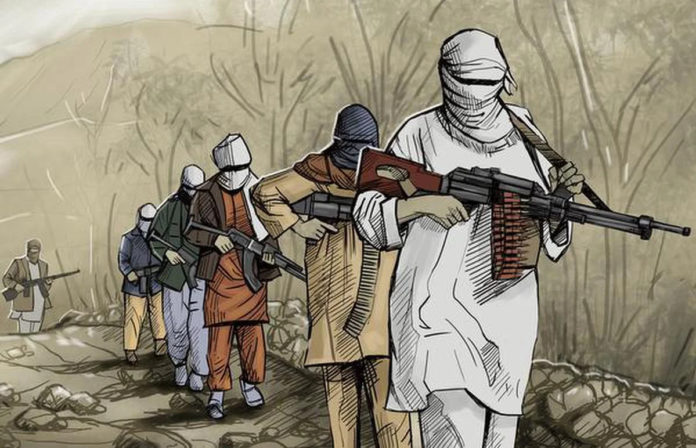The branding of TTP as modern Khawarij reflects Pakistan’s broader counterterrorism strategy: ideologically delegitimizing the “mischief-making group” while simultaneously tackling them by force.
In a notable shift, the Pakistani government has officially designated the outlawed Tehreek-e-Taliban Pakistan (TTP) as “Fitna al-Khawarij.” This decision marks a shift from addressing the group’s threat purely through military means to engaging in an ideological battle. The Ministry of Interior issued a notification requiring all state institutions to prefix the term “Khariji” to the names of individuals involved in terrorist activities. This aims to expose the distorted ideology of such groups that misuse religion to justify their violence. Additionally, titles like ‘Mufti’ and ‘Hafiz’ will no longer be associated with individuals linked to terrorism. This strategic move, as terrorist attacks intensify, underscores the government’s efforts to discredit and undermine extremist elements, emphasizing that they have no genuine connection to Islam or Pakistan.
The term “Kharijites” refers to early Muslim groups who broke away from mainstream Islam. Known as “the secessionists”, they separated themselves from both the Shiʿites and the early Sunni communities. Initially, they supported Ali (the fourth caliph) during the first major Islamic civil war or first fitna. However, dissatisfaction with Ali’s decision to settle a dispute through arbitration led some followers to leave his army and form their own group, thus becoming the first Kharijites.
Though a historical phenomenon, the radical mindset of the Khawarij persists even today. They were known for their extreme and rigid stance against corruption, injustice, and violations of Islamic law, believing that only those who meet specific criteria of justice and competence should lead the Muslim community. Their stringent views often led them to adopt controversial and unacceptable measures, including violence and terrorism, to achieve their goals. Consequently, they were regarded as dangerous and extremist in Islamic history, contrasting sharply with the core values of unity, peace, tolerance, and justice promoted by mainstream Islamic groups.
The Khawarij’s actions, characterized by divisiveness and a narrow interpretation of Islam, highlight a significant departure from the inclusive and harmonious ideals central to true Islamic teachings. The TTP aligns with this extremist ideology as it rejects the lawful authority through its rebellion against the Pakistani state and justifying violence against both Muslims and innocent civilians to achieve its goals. By associating the TTP with this historical deviation, the government aims to discredit the group’s violent tactics and bring to the fore its departure from authentic Islamic values.
It bears mentioning that using such ideological labels in counterterrorism extends beyond theological debate; it is also a psychological strategy aimed at influencing public perception. By labeling the TTP as a “mischief-making group” that distorts religion, the government seeks to erode the group’s influence over the public and its potential sympathizers. This term carries strong historical and religious connotations of rebellion and deviance, which can stigmatize the group and weaken its support base. Additionally, this labeling serves as a tool to foster unity among religious scholars, clerics, and the general public, framing the fight against the TTP as a collective effort to protect the true teachings of Islam. In doing so, the government strives to subvert the TTP’s narrative while strengthening societal resilience against extremist ideologies.
Moving forward, combining military action with ideological delegitimization may offer a more sustainable approach to combating terrorism. The government’s decision to classify TTP reflects the need to address not only the physical threat posed by extremist groups but also the ideological narratives that fuel their existence. To enhance this strategy, further engagement with religious scholars, community leaders, and educational institutions is essential to propagate the message that groups like the TTP do not represent true Islamic values. Additionally, policies promoting social and economic development in regions affected by extremism can help reduce the appeal of such groups, providing alternative paths for individuals who might otherwise be drawn into the cycle of violence. By addressing both ideological and socio-economic dimensions, Pakistan can create a more holistic approach to counterterrorism.




